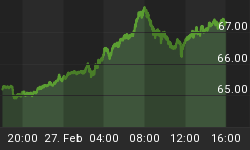Robinhood--the legend that stole from the rich and gave to the poor--is a myth, according to many historians. Now, some are wondering if the revolutionary zero-fee trading app of the same name is the sequel to the legend, or its nemesis.
Is Robinhood, the app, the real deal or is it colluding with the Sheriff of Nottingham to help King John … in this case, Wall Street?
In the aftermath of the GameStop saga, when Robinhood became the front line in a war between Wall Street and a new breed of retail investors, the bastion of democracy for capital markets is now under fire for having taken Wall Street’s side in this battle.
As a result, its users are filing lawsuits, calling for a boycott, with concerns that regulators (let's say Richard the Lionheart) just might investigate.
It all started when short-sellers Citron Research and Melvin Capital placed bets that GameStop shares would fall. However, the collective group of Reddit users from the WallStreetBets subreddit bought the stock as hedge funds were attempting to short it.
Melvin Capital Management lost over half its assets in January after GameStop burned short-selling funds. Business Insider reported that Citron Research covered a 100% loss. Both closed their short positions on GameStop.
In a meantime, many retail brokerages decided to restrict new purchases of GameStop. However, what angered many is that, according to the decision, hedge funds could buy and sell, but on many platforms, retail investors could only sell, which was hardly fair.
Even though Robinhood wasn’t the only one to restrict buying on GameStop stock, its actions were seen as a fundamental betrayal of its users. Right after the decision to restrict buying, Robinhood was hit with a class action lawsuit by its users.
The move to restrict trading also created bipartisan anger, where officials from both political parties have called out the situation as favoring Wall Street and called on the regulators to open the investigation.
The US Securities and Exchange Commission said it would review restrictions to see if they may “disadvantage investors or otherwise unduly inhibit their ability to trade certain securities”.
In a statement, the SEC said it was working with other regulators and exchanges “to ensure that regulated entities uphold their obligations to protect investors and to identify and pursue potential wrongdoing”.
This is Robinhood’s curse. It’s a millennial-geared stock trading app, and that means when its users turn against it, their anger goes viral.
In just a couple of days, there were more than 120,000 posts on Twitter and other social media using hashtags such as #boycottrobinhood, #deleterobinhood, and #cancelrobinhood.
Nor is that the end of Robinhood’s woes. The trading platform was sued earlier this week for wrongful death by the family of Alex Kearns, a young options trader who committed suicide last June after seeing a negative portfolio value that did not represent his actual balance.
Many Americans opened their first online trading accounts during the pandemic, using part of their stimulus checks to trade stocks. The start-up grew from one million subscribers in 2016 to six million accounts in 2018 and currently has more than 13 million. Just last year, Robinhood added 3 million accounts last year, with half of them first-time traders.
There have also been some other reputational issues.
In October, an internal review by Robinhood found that nearly 2,000 accounts were compromised in a hacking spree that siphoned off customer funds. The hackers compromised users' personal email accounts outside of the trading app and used those emails to gain access to their Robinhood accounts.
In March, when the market was tanking and volatility was at an all-time high, the Robinhood platform continuously crashed.
Robinhood attributed the outages to an infrastructure "instability" that kept systems from communicating with each other. The issue prevented clients from accessing its app, website, and help center.
These are troubled times for Robinhood, and winning back its reputation as the app that made trading democratic won’t be easy.
By Michael Kern for Safehaven.com
















